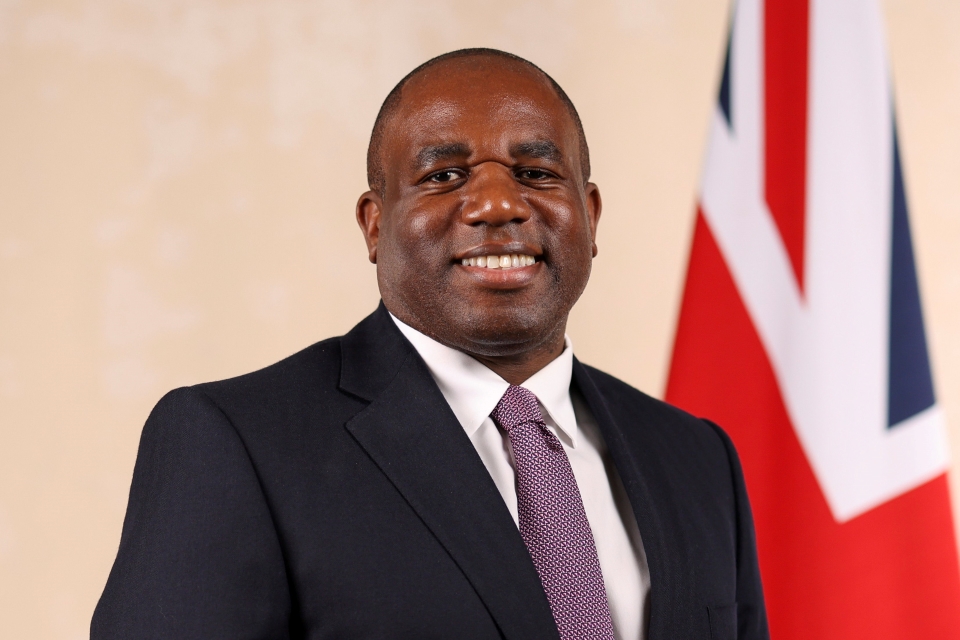Thank you, President Asakawa, for bringing us all together today.
I am really very, very pleased to see such a strong line-up as we launch this important initiative.
In my first major speech as Foreign Secretary, the Kew Lecture, I spoke about the need to put tackling the climate and nature crisis at the heart of our foreign policy.
I passionately believe this is the right course for Britain – given the size of the threat, and the scale of the opportunity.
And we are putting climate at the centre. Already domestically, we have got rid of the onshore wind ban. Already domestically, we have set up GB Energy – the first public utility to really harness and race us forward on that clean energy mission. Later on today, our Prime Minister will announce an ambitious NDC target, and we have already said that there will be no renewal of oil and gas licenses in the North Sea and we’ve seen the end of coal in the United Kingdom. We have got off to a major, major start. I passionately believe that this is the right course for Britain given the size of the threat then and the scale of the opportunity.
But clearly, no one country can tackle this problem alone.
So it is very important to see countries from the Indo-Pacific and the Euro-Atlantic, all working together, all recognising that our security is indivisible, and that this is a true climate-nature moment where we come together and we see that acutely in conflicts like the conflict that we see in Ukraine.
I am also delighted that the UK will be playing its part, announcing today a 280 million dollar guarantee as part of this collective effort.
I said it in my Kew speech and I have heard it frequently at past COPs, but it really bears repeating.
Words are not enough. If we are to avoid the worst, all of us need to take action. And for countries like those on this panel, whose economies prospered in the age of hydrocarbons, that means putting our money where our mouth is.
But it’s not just about what we commit, it’s also about making the most of that money.
All of us on this panel will have experienced difficult conversations with our finance ministries.
And at the same time, all of us will have heard again and again in conversations with partners in the Global South the shortages in climate finance and how big they are, and they risk getting bigger.
The best way to manage this is through innovative and multilateral solutions like this finance facility. Whether we say we want to get our penny’s worth or bang for our buck, the point remains the same – this is about maximising our impact.
I congratulate the Asian Development Bank and our friends here today for their work in reaching this milestone.
Thanks to the design of this Facility, you will be able to use every pound, dollar, krona, yen or won from us, and lend four and a half times as much.
As a result, we will have leveraged eleven billion dollars between us.
And we are going a long way towards fulfilling your ambition to be the climate bank of Asia.
This is urgently needed.
Over half of our global emissions come from Asia, almost half from developing Asia.
This is not surprising given the region’s size and impressive growth in recent years.
But it highlights the need for climate action.
Not least given how climate change risks reversing development gains particularly in the region, with over 40 million people at risk of falling back into extreme poverty because of the impact of the climate emergency.
Ultimately, like all the work we do at COP, this event is about them, not us.
It’s about taking the action they need.
It’s about getting them access to the finance they deserve.
It’s about changing their lives for the better.
And preserving a planet on which they and we can live in harmony with our natural environment for generations to come.
Thank you.

